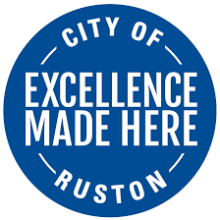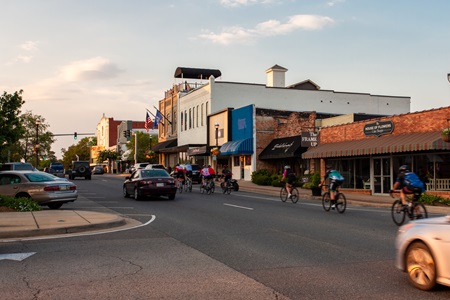
Fast, affordable Internet access for all.

Ruston, Louisiana officials say they’re throwing in the towel, and will be selling a city-owned fiber network that has existed for the better part of 15 years.
City officials say they finalized the decision at a city council meeting earlier this month, though they’d already sent out a Request for Proposal (RFP) for potential bidders as early as February.
The network was first constructed back in 2010, and consists of over 136 miles of fiber connecting roughly 300 area businesses. The network doesn’t currently service residential customers, though that could change under new ownership.
The city had briefly considered expanding the network in 2018, but scrapped the idea two years later. Ruston Mayor Ronny Walker tells the Lincoln Parish Journal that numerous factors went into the city’s decision, including new broadband construction currently being funded by a historic new wave of federal broadband infrastructure subsidies.
“Six years ago we did a study and thought about getting into the private/home internet service,” Walker said. “We were moving along that track and then four years ago, when the federal government starting putting so much money into broadband across the United States — billions of dollars to the state of Louisiana — that’s when we decided as a staff it was time to exit that business because there were so many other large companies doing that.”

Like countless communities, Ruston sees little meaningful broadband competition. Cable giant Optimum enjoys a monopoly over broadband access across much of the city, with AT&T DSL and fiber scattered across some neighborhoods. This muted competition has resulted in spotty access, slow speeds, high prices, and substandard customer service.
Whereas many U.S. communities saw massive federal subsidies as the perfect opportunity to build or expand public networks that might otherwise be financially untenable, Ruston’s Mayor appears to have headed in the exact opposite direction.
“I am a firm believer that if we can’t be number 1 or number 2 in a business, then we need to get out of it,” Walker declared last February. “Fiber is not our strong suit. We don’t have the (manpower). We depend on contractors. Before the government got into it, we were in pretty good shape. But when the government started throwing out hundreds and hundreds and hundreds of dollars to provide fiber throughout the state, we backed off. It’s a whole different ball game now.”
Walker is referring to the more than $1.3 billion in federal BEAD broadband funding Louisiana is slated to receive sometime in the next year.

There’s no guarantee that money reaches the unserved and underserved locations in Ruston given the lion’s share of it will be given to regional telecom monopolies – many with a history of empty promises when it comes to even broadband deployment. Similarly, there’s no guarantee the Ruston network’s new private owner sees uniform expansion and affordability as priorities.
Other municipalities with similar networks have taken the exact opposite approach. Martinsville, Virginia, for example, saw the flood of federal funding as the perfect opportunity to dramatically expand a fiber network it had under-utilized for decades, and is now working to extend affordable fiber broadband to every last city resident.
Meanwhile, what Ruston’s connectivity future looks like remains decidedly unclear. Walker states that more than 10 companies are interested in buying the city’s underground and fiber optic network, and responses to the RFP are due by April 25.
Inline image of cyclists on N. Vienna St in Ruston courtesy of Wikimedia Commons, CC0 1.0 DEED CC0 1.0 Universal
Inline image of Pat Patterson Park in Ruston courtesy of Wikimedia Commons, CC BY-SA 4.0 DEED Attribution-ShareAlike 4.0 International
